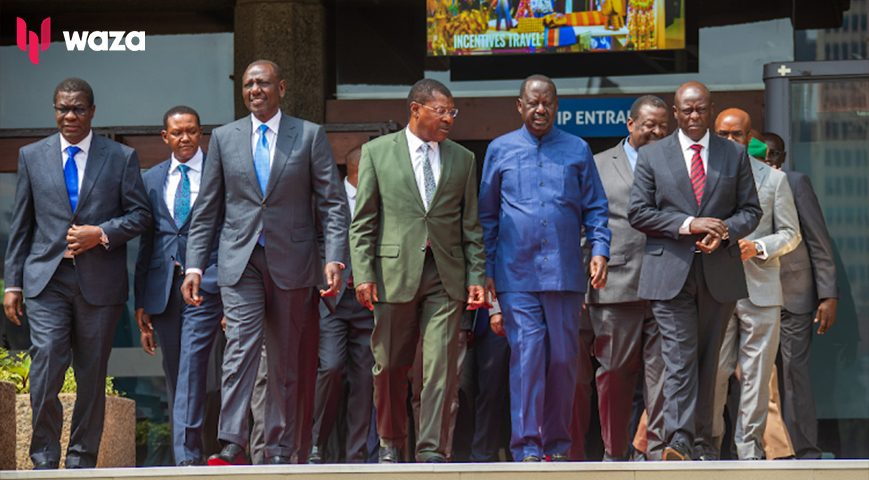Concerns over the appointment of key ODM figures to the Cabinet have prompted Raila Odinga to implement a comprehensive strategy to address the unease among some supporters. Upon his return to the country on Wednesday evening, Raila convened a meeting with allies at the residence of a former Jubilee operative to develop a response plan.
The meeting, which included top ODM leaders and the new Cabinet nominees from the party, aimed to address concerns within the ranks. It emerged that one nominee felt they were assigned a less significant role than initially promised, causing dissatisfaction.
These internal disputes and fears of backlash from supporters, including young activists who had pushed for significant changes in the government, led ODM to revise its approach. Following the meeting, ODM publicly distanced itself from the members nominated to the Cabinet, insisting they accepted the positions independently without party consultation.
"The truth of the matter is that there is no decision of any organ of ODM that I sit in to join the Ruto government," stated ODM Secretary General Edwin Sifuna on Thursday morning. Sifuna accused certain media outlets of misrepresenting the party, particularly after Raila's attendance at the signing of the IEBC Bill into law at the Kenyatta International Convention Centre (KICC). He clarified that ODM's call for a national dialogue has been misconstrued as a negotiation between ODM and the ruling United Democratic Alliance (UDA).
Did you read this?
This stance contrasts with previous statements from ODM's leadership, which had appeared open to President Ruto's proposal for a broad-based government and national dialogue. On July 12, ODM had expressed willingness to participate in discussions focused on the nation's future.
Despite apparent cooperation, ODM's leadership, including Raila, has denied any formal negotiations with President Ruto's administration. Sifuna emphasized in a statement on July 23 that any ODM members joining the Kenya Kwanza government did so without the party's endorsement. He reiterated ODM's commitment to its principles and ongoing efforts for a better Kenya.
Raila, who was recently in Dubai, issued new demands before engaging in dialogue with the government. These included compensation for victims of extrajudicial killings, the release of detained protestors, and the prosecution of police officers involved in violence against demonstrators. Raila also called for the dismissal of Nairobi Police Commander Adamson Bungei.
The overarching strategy seems to aim at maintaining ODM's legacy while avoiding alienation of young supporters and critics. By publicly denying involvement in the government, ODM seeks to preserve its minority status in Parliament and the associated benefits.
Critics argue that the inclusion of prominent ODM figures, such as Hassan Joho and Wycliffe Oparanya, in the Cabinet suggests Raila's tacit approval. Political analyst Alexander Nyamboga suggests that ODM is likely to cooperate with Kenya Kwanza on various legislative and budget issues.
The situation raises questions about ODM's ability to effectively oversee the executive branch, given that some of its members are now part of the Cabinet. As the second-largest political party and a key member of the Azimio La Umoja One Kenya Coalition, ODM remains in the minority in Parliament. The constitution does not clearly address the scenario where opposition members are included in the Cabinet, leaving room for interpretation and potential challenges in maintaining ODM's position as the opposition.









